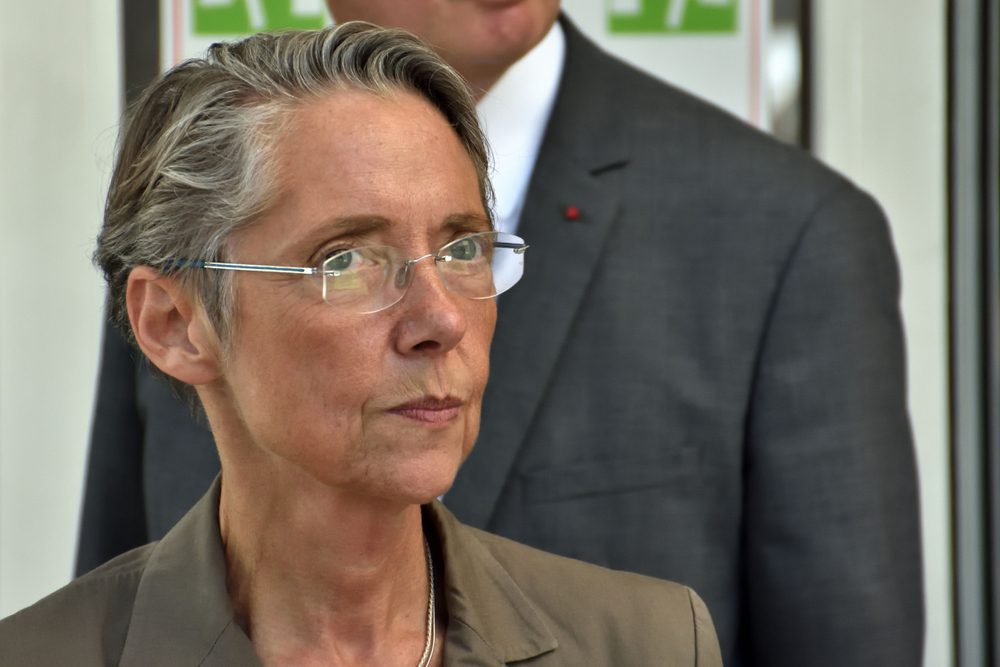
French President Emmanuel Macron, re-elected on Sunday, April 24th 2022, has just appointed a new Prime Minister. In accordance with the constitution, the previous government led by Jean Castex had to submit its resignation on May 13rd. The new government has the task of running affairs at least until the legislative elections, which will be held on June 12 and 19,2022.
In line with his campaign promise, Emmanuel Macron appointed a woman as prime minister: Elisabeth Borne. She was previously minister of labour in the Castex government.
EN DIRECT | Cérémonie de passation de pouvoir à Matignon entre @JeanCastex et @Elisabeth_Borne. https://t.co/IIQExFhT7u
— Gouvernement (@gouvernementFR) May 16, 2022
This is the second time that a woman has been given the post of prime minister in France. The first to have held this position was Edith Cresson under the presidential mandate of François Mitterrand. She remained in office for less than a year, from May 1991 to April 1992. At the time, she was widely criticised, and distinguished herself by numerous clumsy statements that contributed to her unpopularity—for example, by calling the English “homosexuals,” and the Japanese, “little ants.”
Several other women had been approached by Emmanuel Macron for the post, and many names have been circulated in the press in recent weeks. Despite official denials from the Elysée, several have reportedly turned down the job.
Elisabeth Borne is an engineer by training. She is an alumnus of the École Polytechnique—one of the most prestigious schools in France, from which the former President of the Republic Valéry Giscard d’Estaing, for example, graduated. She started her political career in 1987, and since then has held various positions in left-wing governments. She has worked for the socialist Lionel Jospin and for the mayor of Paris Bertrand Delanoë. She has worked for large semi-public companies such as the train company SNCF or the RATP (Parisian transports).
Borne was also cabinet director for the socialist Ségolène Royal when Royal was Minister of Ecology from 2014 to 2015. During this period, she collaborated with Alexis Kohler, who was then Emmanuel Macron’s chief of staff at the ministry of the economy and who has since become secretary seneral of the Elysée Palace. She is therefore a woman who has been well established in the political system for many years, who knows all the ins and outs of it, and who has always had the confidence of the Left. She was also the first woman to be appointed prefect in 2013.
The announcement of her appointment did not arouse much enthusiasm in the French press. Elisabeth Borne’s profile gives the impression of a default and very bureaucratic choice. She is clearly on the Left, which is signal from Emmanuel Macron to reassure the Left fringe of his electorate, and—why not, the voters of Jean-Luc Mélenchon.
For various reasons, however, Elisabeth Borne has a negative image with a whole section of the population. As minister of labour, her name is associated with Emmanuel Macron’s unpopular reform attempts, such as the pension reform or the unemployment insurance reform. She was also behind, along with Health Minister Olivier Véran, numerous restrictive measures during the COVID-19 pandemic, and in particular supported a suspension without salary for employees facing a vaccination obligation as part of their job.
The result of the election of deputies to the National Assembly on June 19th will decide whether the government majority will be maintained or changed—and whether Elisabeth Borne will be reappointed to her post.
